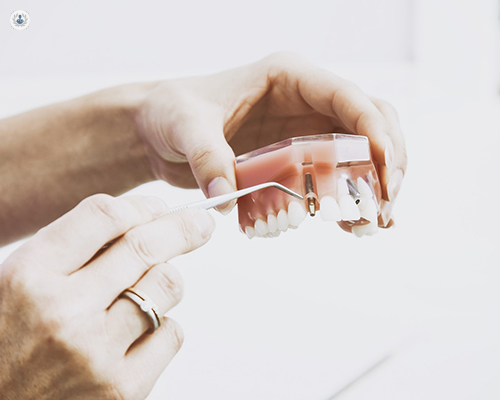FAQs about dental implants
Autore:Dental implants have revolutionised the field of dentistry, offering a durable, natural-looking solution for tooth replacement that restores both function and aesthetics. Whether you've lost a tooth due to injury, decay, or periodontal disease, dental implants provide a reliable option for restoring your smile and improving your overall quality of life. Read on to find out if they could be a good suit for you.

What does a dental implant consist of?
A dental implant consists of three main components: a titanium post, which is surgically implanted into the jawbone; an abutment, which connects the implant post to the artificial tooth; and a crown, bridge, or denture, which serves as the visible restoration that mimics the appearance and function of natural teeth. This comprehensive approach allows dental implants to closely replicate the look, feel, and function of natural teeth, making them a popular choice for tooth replacement.
What are the main advantages associated with dental implants?
One of the most significant advantages of dental implants is their durability and longevity. Unlike traditional dental restorations such as bridges or dentures, which may need to be replaced every five to 10 years, dental implants are designed to last a lifetime with proper care and maintenance. The titanium implant post fuses with the jawbone through a process called osseointegration, providing a stable foundation for the artificial tooth and preventing bone loss and changes in facial structure over time.
Furthermore, dental implants offer several functional benefits that improve oral health and overall well-being. Unlike traditional dentures, which may slip or shift while eating or speaking, dental implants provide a secure, stable bite that allows for comfortable chewing and speaking. This enhanced bite function can improve dietary choices, digestion, and nutrition, leading to better overall health and quality of life.
Additionally, dental implants help preserve the integrity of adjacent teeth by eliminating the need to alter healthy tooth structure for support, as is often required with traditional dental bridges. This preservation of natural tooth structure contributes to long-term oral health and reduces the risk of future dental problems.


